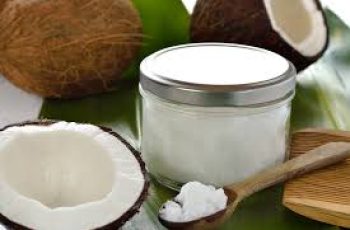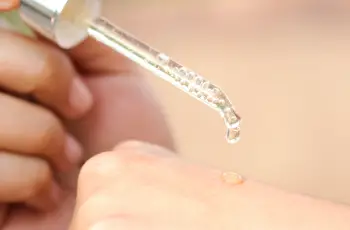
Is it safe to use mandelic acid during gestation?
Pregnancy is always a magical time, with the rollercoaster of emotions that occurs daily, and the primary concern is preparing for your little one’s arrival, this can feel overpowering. However, this doesn’t mean you should simply let the stress take over everything, instead, take the time to make sure you still have time to care for yourself and enjoy some quality time.
This is something that I would advise all mothers to participate in on a regular basis. Another thing I would suggest is to make sure you remain safe, this will ensure that the formulations and activities you apply to your skin are appropriate, safe and avoid any adverse reactions that you want to avoid. This brings us to the subject of today’s blog entry and determining if mandelic acid is safe during pregnancy. Without additional payment, we should explore the menu and find out more.
What is the definition of mandelic acid?
Derived from bitter almonds, mandelic acid is one of the less well-known members of the alpha hydroxy acid family. Despite some research that is lacking, it is still considered to be one of the most mild AHAs, still having the capacity to assist with addressing some concerns. The cause of the gentle nature of mandelic acid on the skin is that its molecular weight is greater than the other acids, such as glycolic acid, thus, it cannot penetrate the skin to a sufficient degree and results in irritation.
Some research has demonstrated that mandelic acid is more effective at combating problems with the skin and is even considered to have a greater effectiveness than salicylic acid in treating issues like papules and other skin problems. One research study shows that the use of a chemical peel that contains 45% of mandelic acid has a greater effect than another that contains salicylic acid.
Mandelic acid’s skincare benefits.
Exfoliation of the outer layer of the skin is intended to eliminate the accumulation of excess oil, remove dead skin cells, cleanse the skin of dirt and bacteria, and reduce the appearance of acne. This not only promotes the complexion and removes impurities, but it also decreases the likelihood of developing acne or other problems.
By removing the accumulation of dead skin cells, the skin’s texture is left more smooth and stronger.
Mandelic acid can increase the production of collagen, this will help the skin to have a more wrinkled, dense appearance, and reduce the presence of fine lines and wrinkles.
Large areas of hyperpigmentation, such as dark patches or instances of melasma, can be greatly reduced.
Packed with anti-oxidants, mandelic acid can defend against the damage caused by free radical exposure, such as sunlight, pollution, central heating, and other environmental predators.
You can learn more about the mandelic acid in the skin by looking at the Skin School.
What kinds of products should be eschewed during pregnant?
Other than the food and drink that should be avoided during gestation, there is also a variety of skincare products and ingredients that should be avoided.
Retinol, retin-A, and retinyl palmitate
All of the vitamin A and its breakdown products should be avoided during all of pregnancy; additionally, this should continue until the end of breastfeeding. This is caused by the potential complications that baby’s development and birth defects can pose.
Salicylic acid and peroxide derived from benzoyl compounds.
Having a flare-up during acne is common during pregnancy; some people advocate the use of salicylic acid or benzoyl peroxide, however, these chemicals are too potent for the skin during pregnancy and should be avoided. If you have trouble regulating any acne-related breakouts, it’s best to talk to a doctor or dermatologist in order to find the best treatments for you and your skin.
Other ingredients that should not be utilized during gestation are listed below.
Essential oils
Hydroquinone
Formaldehyde
Aluminum chloride
chemical screens for chemicals
Dihydroxyacetone
Tetracycline
If you notice any of these ingredients in your typical routine, stop using them immediately. I also recommend talking to your doctor in order to make sure you’re using the safest routine for you and your baby.
When is it acceptable to use mandelic acid?
You must not utilize mandelic acid if you intend to simultaneously apply retinol to the skin. This is because it will lead to an excessive amount of exfoliation, which will lead to an excess of dry skin and irritation. Over-exfoliation will also lead to the depletion of sebum, the natural oily substance present on the skin. This can lead to some skin imbalance, which causes the skin to overproduce sebum, this results in the skin becoming more oily and prone to breakouts, acne, and other problems.
If you desired to utilize mandelic and retinol in your daily routine, it would be most effective to alternate between the two powerful compounds. By not overlying them on top of each other, you will give the skin sufficient time to redistribute their pH and allow the skin to enjoy the benefits without having to deal with the side effects of overly dry or irritant skin.
Is mandelic acid safe during breastfeeding?
Mandelic acid is legitimate during breastfeeding. This is caused by the acid’s lack of penetrative power, in comparison to other more potent acids, such as the glycolic acid and salicylic acid, this is due to the acid’s larger molecular weight.
If you’re unsure or nervous about utilizing a skincare formula, especially if it’s a new product, then it’s best to talk to a doctor before applying anything to the skin.
What kind of skincare can I utilize during my pregnant?
Several dedicated brands have created specific products intended for mothers that will allow them to sleep peacefully. However, if you want to simply alter a few aspects of your existing regimen, then you must first understand that your skin will undergo a few alterations during pregnancy. Some of the most common skin issues that pregnant women commonly have are dry skin, areas of melasma, and hyperpigmentation, additionally, flare-ups in acne are common. You may also have pre-existing issues with the skin, such as eczema, psoriasis, or rosacea, these issues may increase during your first trimester.
Here, you learn a bit more about the use of mandelic acid during pregnanthood. If you have additional questions, come on, and find us on Instagram.


